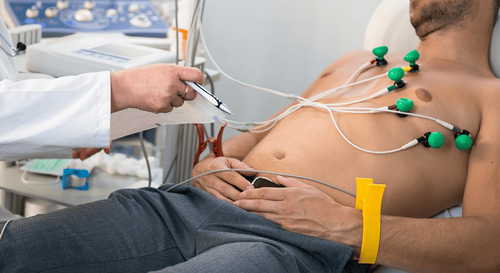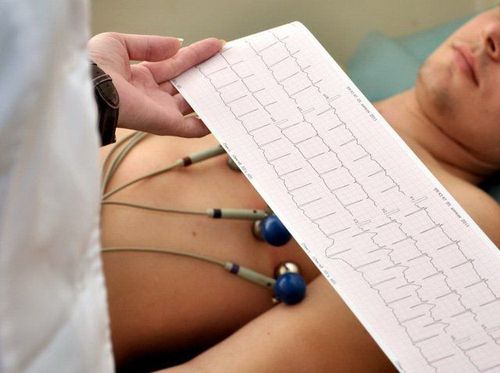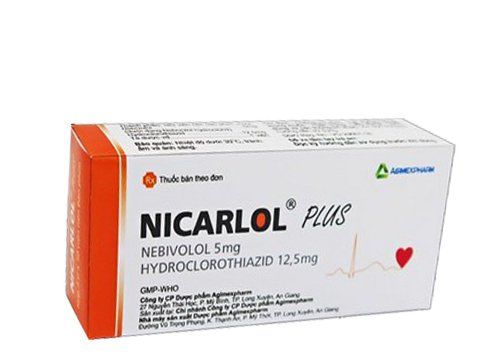This is an automatically translated article.
The article is professionally consulted by Master, Doctor Nguyen Tung Hoanh - Interventional Cardiologist - Department of Resuscitation - Emergency - Vinmec Nha Trang International General Hospital.Atrioventricular block is a partial or complete obstruction of the conduction of electrical impulses from the atria to the ventricles due to anatomical or functional impairment. If the disease is not detected and treated early, it will progress to higher stages, causing arrhythmias and various dangerous complications.
1. What is atrioventricular block?
The average heart rate of a healthy person ranges from 60-100 beats per minute, the heart rate is controlled by a system of electrical impulses that are conducted from the atria to the ventricles. If this conduction pathway is partially or completely blocked, atrioventricular block is formed. Depending on the degree of obstruction, the atrioventricular block is divided into different degrees as follows:First degree atrioventricular block: Called discreet block, the disease occurs at the atrioventricular node, the patient will not feel What are the signs or symptoms if the block time is not too long at this level? In case of block time > 0.3 seconds, the patient may feel tired and short of breath. Second-degree atrioventricular block is divided into two types: functional block (Mobitz I, or Wenckebach phenomenon) and anatomical block (Mobitz II), at this stage patients often have mild arrhythmias due to disruption of the heart rhythm. conduction between the atria and ventricles. Third degree atrioventricular block: Also known as complete atrioventricular block, the impulses from the sinus node in the atria do not reach the ventricles, resulting in a very slow heart rate.
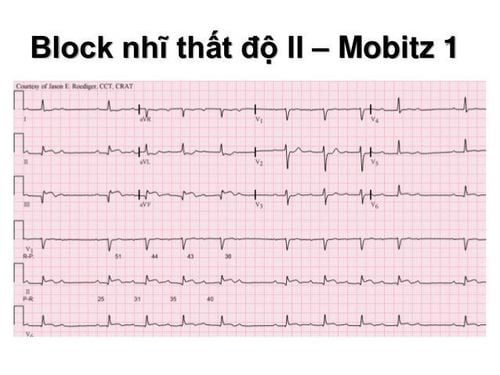
Hình ảnh block nhĩ nhất độ 2
2. Causes of atrioventricular block
There are many causes of atrioventricular block, including: Congenital causes or causes due to the use of drugs for hyperkalemia, ischemia, fibrosis, inflammation, and vascular diseases.In addition to the underlying causes, the following factors also increase the likelihood of atrioventricular block:
Age factors Diabetes Obesity Pre-eclampsia Kidney disease, especially chronic kidney failure Collective Excessive exercise and sports Smokers.
3. Common symptoms of low atrial block
Depending on the severity of the disease, the manifestations of atrioventricular block will vary.1st degree atrioventricular block: At this stage, the patient almost does not have any specific symptoms, so very few people detect the disease except in the cases of going to the hospital to check at the 2nd degree AV block: At this stage, the patient has symptoms such as fainting, dizziness and feeling tired. Some people even feel chest pain and shortness of breath for a short period of time for a few minutes. Third degree atrioventricular block: This stage is very serious, the patient will have all the symptoms like in the second stage but more severe. Third degree atrioventricular block can be life-threatening if not treated promptly.
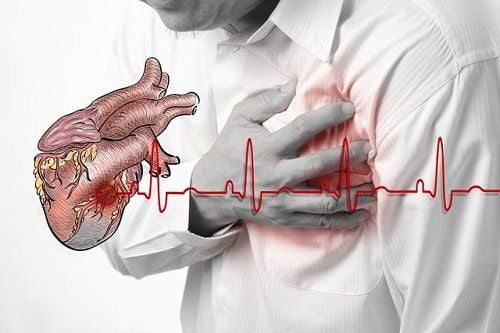
Đau ngực có thể là dấu hiệu của tình trạng block nhĩ thất độ 2
4. Is AV block dangerous?
Atrioventricular block can be very dangerous if the disease progresses to stage 3. Complications of atrioventricular block can greatly affect the patient's life, such as bradycardia, which can cause dizziness, shortness of breath, or shortness of breath. faint.Atrioventricular block can also lead to cardiac arrest and circulatory failure, a high risk of death. People can also have a fatal stroke as short as an hour after the onset of the disease.
Atrioventricular block in the early stages with common symptoms like other diseases makes many patients unnoticed, until the disease progresses, the risk of complications is high if not treated promptly.
5. How to diagnose and treat atrioventricular block?
Currently, to diagnose atrioventricular block accurately, specialists will rely on the following tests:Results of ECG measurement Results of heart rate measurement by Holter electrocardiogram Results of echocardiogram results Tilt-Table test For 1st and 2nd degree atrioventricular block, without many symptoms, usually no treatment or very few patients with the disease at this stage are prescribed treatment from the doctor, the patient is usually The doctor appoints self-monitoring at home and periodic re-examination from 1-2 years.
However, for 3rd degree atrioventricular block, the patient must be treated because this is the stage of the disease that causes arrhythmias that can be fatal to the patient. Currently, to treat 3rd degree atrioventricular block, your doctor will prescribe you to use some drugs to treat the underlying diseases that cause this disease such as antihypertensive drugs, heart attack drugs...
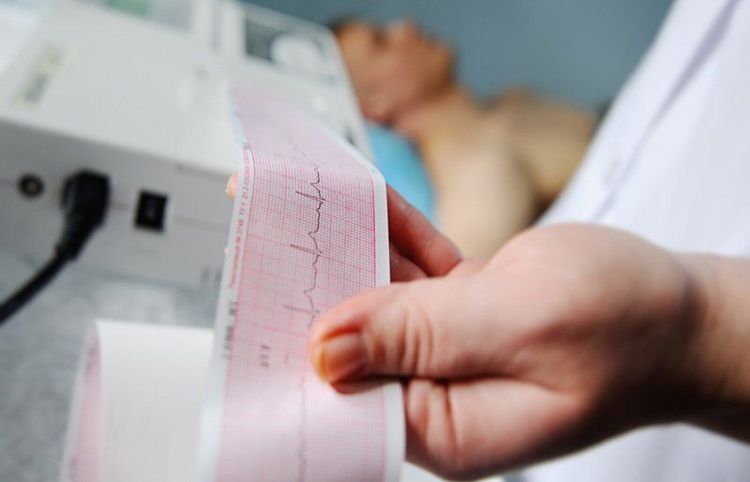
Phương pháp điện tâm đồ cho phép chẩn đoán block nhĩ thất
In addition to drug treatment or surgery to put a pacemaker, the patient should practice a healthy lifestyle to limit the progression of the disease.
Patients should eat according to a scientific diet, do not eat a lot of greasy food and should eat a lot of vegetables and fruits...
The most exercise is walking every day, so it should be included in the list of things to do in the morning. day. And if the patient is too fat, it is advisable to lose weight because obesity is also one of the factors that cause atrioventricular block.
To protect cardiovascular health in general and detect early signs of cardiovascular disease, customers can sign up for Cardiovascular Screening Package - Basic Cardiovascular Examination of Vinmec International General Hospital. The examination package helps to detect cardiovascular problems at the earliest through tests and modern imaging methods. The package is for all ages, genders and is especially essential for people with risk factors for cardiovascular disease.
Please dial HOTLINE for more information or register for an appointment HERE. Download MyVinmec app to make appointments faster and to manage your bookings easily.




